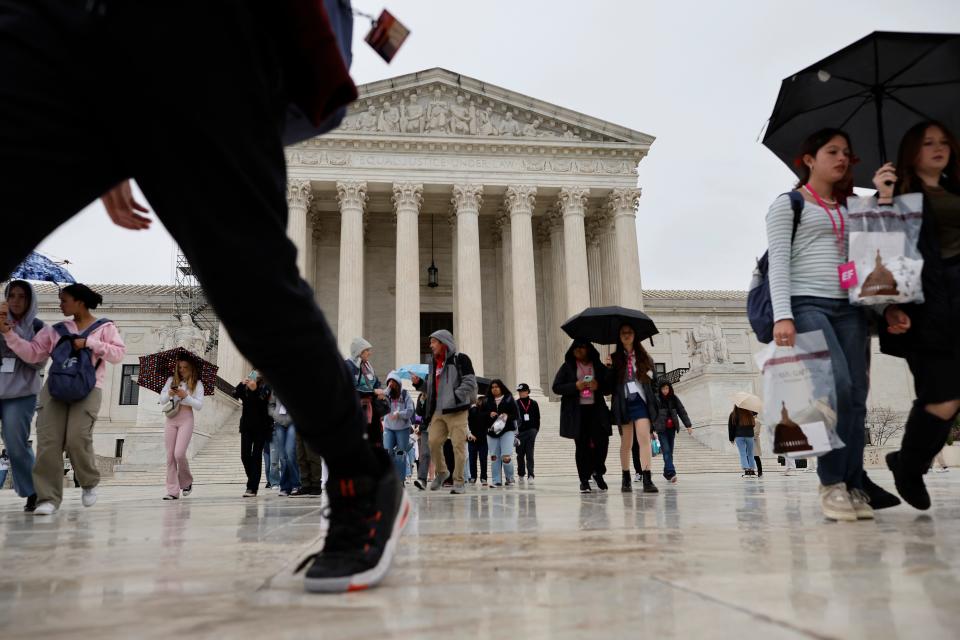Supreme Court declines appeal from Christian school fighting transgender housing
WASHINGTON −The Supreme Court on Tuesday declined to hear an appeal from a Christian college in Missouri that sued the Biden administration over its decision to shield transgender people from housing discrimination.
At issue was a 2021 memo from the Department of Housing and Urban Development that interpreted a federal anti-discrimination law as protecting transgender individuals. The College of the Ozarks claimed that the guidance conflicted with its ability to make housing assignments for students on the basis of sex assigned at birth.
"College of the Ozarks brought this challenge for one reason: The Biden administration was attempting to force them to open their dormitories to members of the opposite sex," said Alliance Defending Freedom senior counsel Julie Marie Blake. "Though the high court chose not to review this case, we are hopeful it will soon take up related cases....College of the Ozarks will continue to follow its beliefs."
Lower courts, including the St. Louis-based U.S. Court of Appeals for the 8th Circuit, sided with the Biden administration on a procedural point last year, finding that the college did not have standing to sue, in part, because the government never attempted to enforce an anti-discrimination complaint against the school.
Tracker: Race, religion and debt: Here are the biggest cases pending at the Supreme Court
The 2021 guidance, the Biden administration told the Supreme Court in its written response in late May, does not by itself require the school "or any other housing provider to do or refrain from doing anything." The college, the administration said, "has not alleged any past, current, or threatened enforcement."
The Biden administration's memo was the result of a significant 2020 Supreme Court decision that bars discrimination in the workplace based on sexual orientation and gender identity. The ruling in Bostock v. Clayton County focused on Title VII of the Civil Rights Act of 1964, which explicitly prohibits workplace discrimination based on race, color, national origin, sex and religion. A majority of the court held that sexual orientation and gender identity necessarily involve a person's sex. Because of that, they reasoned, the law prohibits LGBTQ+ discrimination.
Bostock: How a Supreme Court decision last year is reshaping the legal battle over LGBTQ discrimination
The anti-discrimination housing provision of the Fair Housing Act uses language that is similar to what's in the workplace law, including an explicit prohibition of discrimination on the basis of sex.

This article originally appeared on USA TODAY: Supreme Court declines Christian school suit over transgender housing

